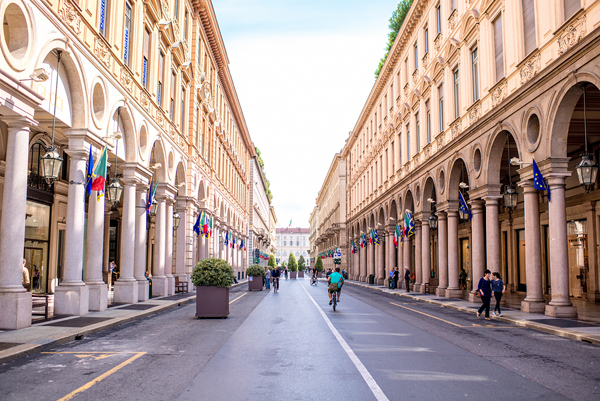
Obtaining a residency visa in Italy is not always easy, but our Guide to Residency in Italy gives newcomers an overview of the steps involved and advice from others who have already navigated the process.
- Gather the necessary documents for residency status in Italy. This includes a valid passport, proof of address, proof of income, and a valid visa.
- Visit the local police station in the area you are living in Italy. You will need to fill out a form and provide the necessary documents.
- Apply for a Tax Number.
- Visit the local Agenzia delle Entrate office.
- Fill out the necessary forms and provide the necessary documents.
- Wait for the Tax Number to be issued.
- Visit the local Anagrafe office. You will need to fill out a form and provide the necessary documents.
- Wait for the residency status to be approved.
What tips do expats have about residency and visas in Italy?
“Prior to moving, obtained a codice fiscal prior to buying a house. We obtained a 1 year visa prior to retiring and applied for residence permit/permesso di soggiorno as soon as we arrived. The process was not difficult, just laborious and confusing at times. You need to learn to cross your t’s and dot your eyes. Due to the number of immigrants to Italy, there are many people providing assistance, and other foreign residents are glad to help with the processes,” said one expat living in Minturno.
“Depending on the length of your stay in Italy, you may need a Schengen visa or a type D visa. This will be determined by the country of origin and how long you will be staying in Italy. You must also show evidence that you have sufficient financial resources to support yourself during your stay. If you are staying for a longer period of time, you may also need a permit of stay which you can apply for at the local police station once you arrive in Italy,” wrote a member in Italy.
“I have 3 Italian lawyers in the family and they will be the first ones to tell you how difficult it is to deal with the government. The website says one thing; the checklist provided by the consulate says another, etc. And then ALL of it is subject to interpretation! My cousins tried to help my brother with his citizenship paperwork to no avail. Eventually he found a specialist in Bologna and he became a citizen 3 years ago. I am using her now and even with a lawyer I have found the same problems you have experienced: conflicting information, the attitude, etc. My interview (which I attended alone but was prepped by my lawyer via Skype) was very difficult. As soon as I left, I burst into tears. Now I’m waiting for the ‘verdict.’ They say it could take a year for a decision,” commented one member living in Palermo Sicily, Italy.
“In order to obtain a visa for Italy, foreigners must contact the Italian Embassy or Consulate in their own country to obtain the appropriate visa form and find out the necessary document requirements, such as a valid passport, birth certificate, marriage certificate and proof of income. Applicants must then complete the form and make an appointment to submit the form and documentary evidence to the Embassy at the designated time. To apply for residency in Italy, applicants must first obtain a visa that is valid for at least 90 days and then register at their local police station. They must provide proof of where they will be living in Italy, proof of income and a valid passport with all relevant documents, such as a birth certificate or marriage certificate, to the police station. Upon receipt of the documents and proof of accommodation, the police station will issue the foreigner a residency permit that must be renewed every five years,” mentioned one expat living in Italy.


